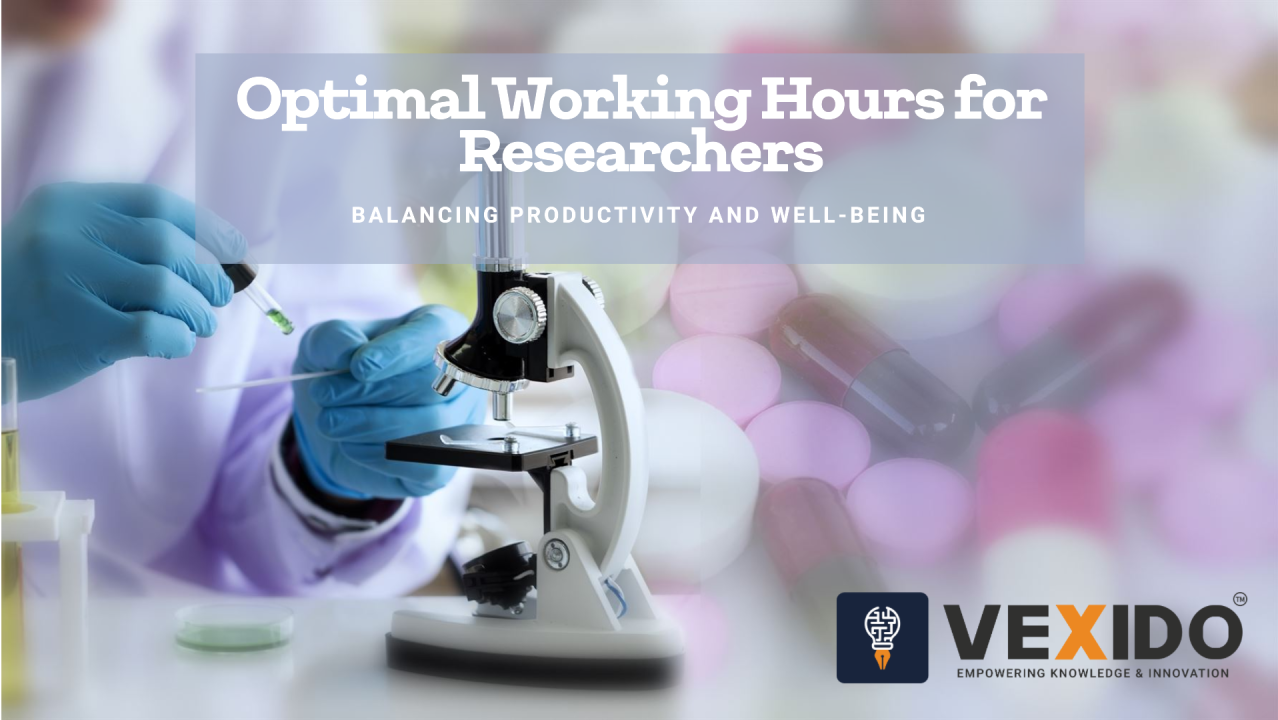
What is the Ideal Working Hours for Researchers: 40 / 70 / 90 Per Week?
Created Date 28-Feb-2025 EST
The Great Debate: Work-Life Balance vs. Academic Pressure
The world of research is often portrayed as an endless pursuit of knowledge, where the line between work and life blurs. But how many hours should researchers actually work per week? Should it be the structured 40 hours, the demanding 70 hours, or the extreme 90+ hours? While some argue that longer hours equate to more breakthroughs, recent studies and real-world experiences suggest otherwise.
This article explores the optimal work hours for researchers, challenges the myth of overwork, and critically examines the toxic culture of excessive working hours pushed by certain academic leaders and institutions.
1. The Standard: 40-Hour Work Week (Ideal for Productivity and Sustainability)
A 40-hour workweek aligns with a typical industry standard and is the model for many structured research environments, especially in government-funded institutions, corporate R&D, and tenured academic positions.
Why 40 Hours Works Best for Long-Term Productivity:
? Improved Focus and Efficiency – Research is about quality, not quantity. Studies show that excessive hours lead to diminishing returns after a certain threshold.
? Work-Life Balance – Encourages time for creative thinking, problem-solving, and personal well-being.
? Cognitive Function and Innovation – Nobel laureates like Albert Einstein and Richard Feynman emphasized deep thinking over relentless work.
? Sustainable Career Growth – Prevents burnout and ensures researchers stay motivated throughout their careers.
???? Supporting Research: A study published in Nature Human Behaviour found that researchers working moderate hours produced more impactful research compared to those clocking excessive hours. Creativity and problem-solving peak when the mind is rested and recharged.
Criticism from Academia
Many traditional academic circles push the idea that researchers must work well beyond 40 hours to succeed. However, this outdated mindset often ignores long-term mental well-being and leads to high attrition rates among early-career researchers.
2. The 70-Hour Work Week: The Reality for Many PhDs and Postdocs
A 70-hour workweek is common in highly competitive research environments, particularly for PhD students, postdocs, and early-career researchers aiming for tenure. Many believe this is the “minimum” requirement to succeed in academia.
Arguments for a 70-Hour Workweek:
? Increased Paper Output – More time in the lab or in front of a computer could lead to more experiments and faster publication rates.
? Competitive Edge – In fields like AI, biotech, and physics, being ahead of peers means more funding and recognition.
? Short-Term Gains – Some researchers see a productivity boost by dedicating longer hours, especially close to deadlines.
The Harsh Reality:
? Burnout and Mental Health Issues – A 2022 Nature survey revealed that over 40% of PhD students suffer from mental health struggles due to extreme work pressure.
? Diminishing Returns – After 50 hours per week, productivity drops sharply, leading to more errors and lower-quality research.
? Exploitation Culture – Many institutions normalize overwork, creating an unhealthy precedent where success is linked to excessive hours rather than innovative thinking.
???? Case Study: MIT physicist Dr. Evelyn Fox Keller argued that working longer hours does not necessarily produce better science. She noted that researchers who maintained a balanced schedule often made more meaningful contributions due to enhanced critical thinking.
3. The 90-Hour Work Week: The Myth of the Superhuman Researcher
Some high-profile academics and entrepreneurs glorify extreme work hours. Figures like Elon Musk have infamously claimed that working 80+ hours a week is necessary for success. But does this apply to researchers?
Why 90+ Hours is a Toxic Standard:
? Cognitive Decline – Scientific studies show that after 60 hours per week, cognitive function declines significantly, leading to more mistakes and retractions.
? Health Risks – Chronic overwork leads to higher risks of depression, cardiovascular diseases, and burnout.
? Lack of Creativity – The most ground-breaking discoveries were often made away from the desk (e.g., Newton’s apple, Einstein’s thought experiments).
???? Criticism from Neuroscientists: Dr. Barbara Oakley, an expert in cognitive learning, emphasizes that “brain downtime” is essential for processing complex ideas. Overloading the brain with continuous work results in poor retention and weak problem-solving skills.
???? Historical Insight: Great minds like Charles Darwin worked only four hours per day on research, spending the rest of his time on exercise and reflection. Yet, his contributions to science remain unparalleled.
Final Verdict: What is the Ideal Workweek for Researchers?
???? 40–50 hours/week: Ideal for sustainable productivity, allowing deep work and creative insights without exhaustion.
???? 50–70 hours/week: Occasionally necessary for high-stakes projects but should not be the norm.
???? 70+ hours/week: Leads to burnout, reduced innovation, and poor mental health.
Recommendation for Researchers:
???? Prioritize deep work over long work – Focused 6-hour sessions are more effective than scattered 12-hour days.
???? Take deliberate breaks – Some of the best scientific breakthroughs happen during downtime.
???? Push back against toxic academia – Research should be about quality, not exhaustion.
Conclusion: Challenging the Toxic Culture of Overwork
The academic world must reject the outdated notion that working 70+ hours per week is a requirement for success. Institutions should focus on better funding, improved collaboration, and mental well-being, rather than glorifying unsustainable work habits.
???? If you’re a researcher, share your thoughts. How many hours per week do you work, and what has been your experience? Let’s rethink the way research should be done!
This entry was posted in Imran A Khan and tagged What is the Ideal Working Hours for Researchers: 40 / 70 / 90 Per Week?


















